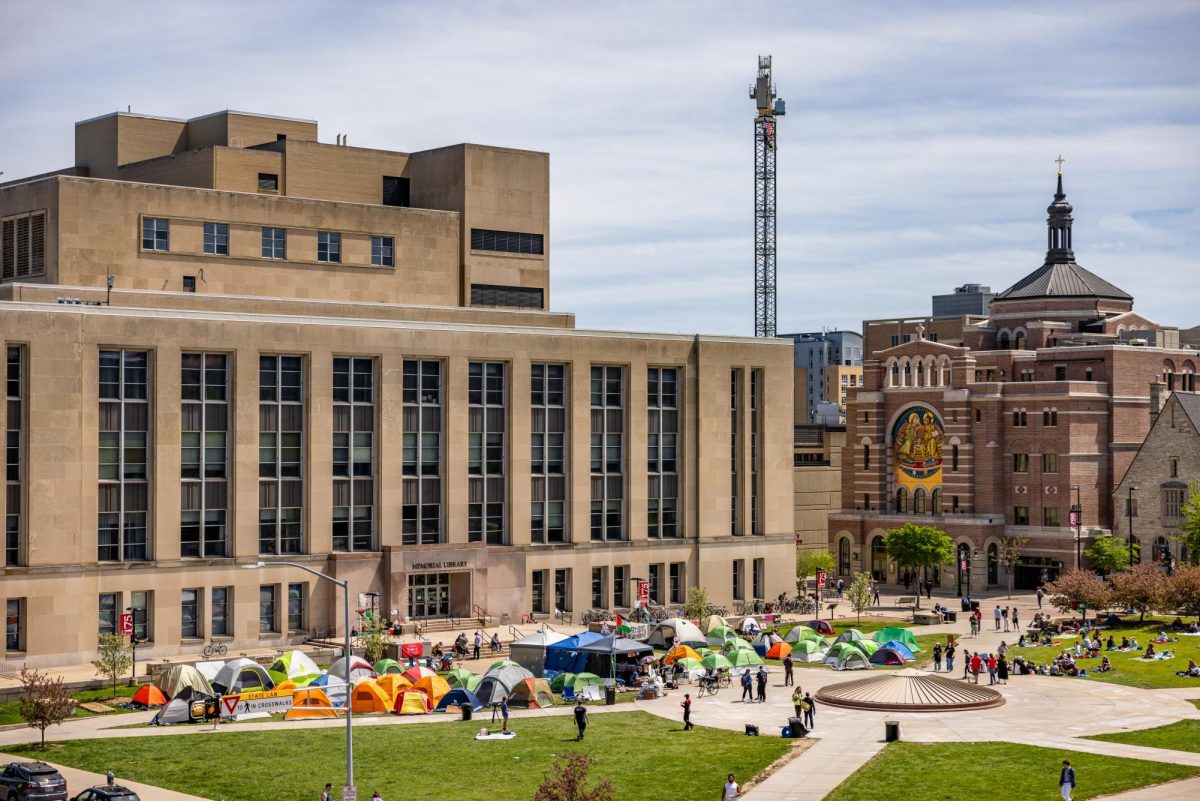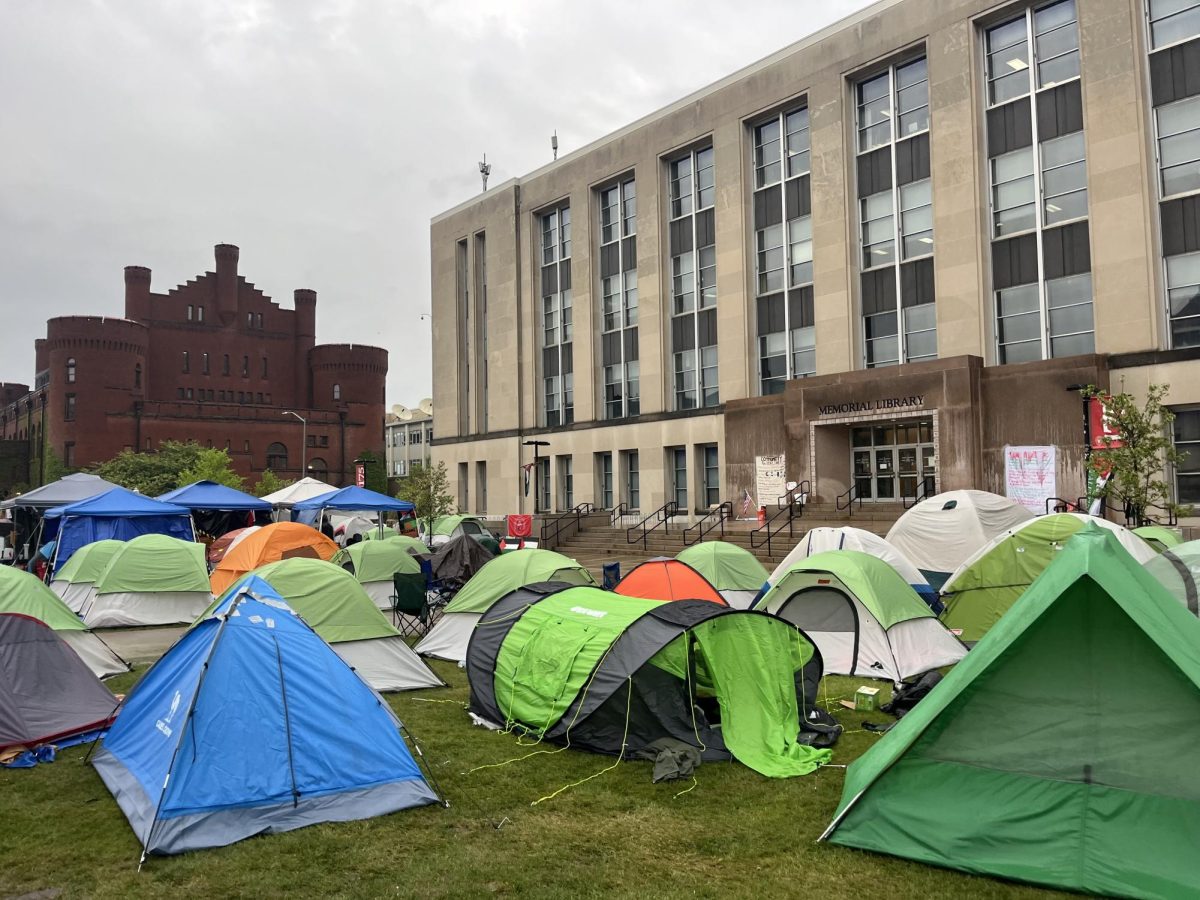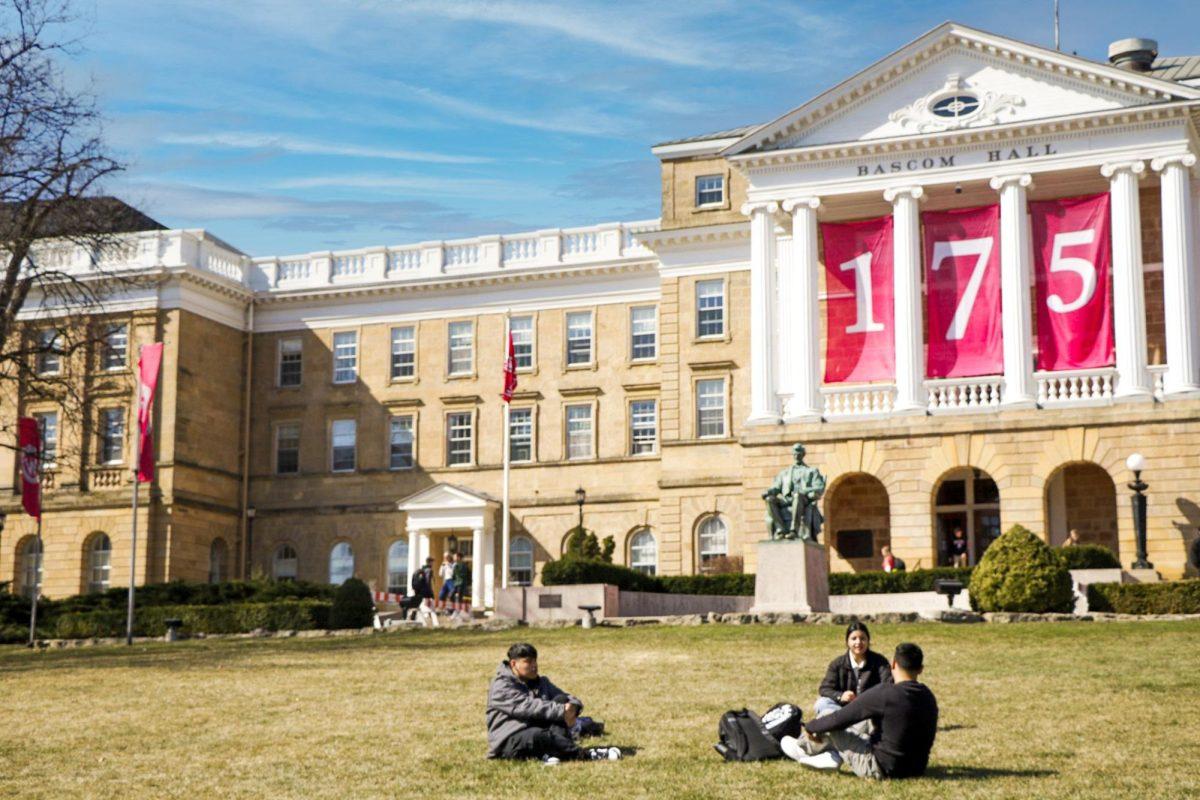[media-credit name=’GREGORY DIXON/Herald photo’ align=’alignnone’ width=’648′] [/media-credit]A special Board of Regents committee met again Tuesday, inching the controversial faculty disciplinary process toward revision.
[/media-credit]A special Board of Regents committee met again Tuesday, inching the controversial faculty disciplinary process toward revision.
The six-member Committee on Faculty and Academic Staff Disciplinary Process discussed feedback and recommendations submitted by faculty groups and the Legislative Council Rules Clearinghouse regarding possible changes to the current disciplinary process.
"The reason we're here is that the public doesn't understand how the system cannot respond how the real world responds," Regent President David Walsh said, noting the public outcry last year when UW faculty members convicted of felonies remained on payroll.
In an effort to expedite the dismissal process for felonious faculty, the special regents' committee has been considering — and reconsidering — revisions of the current policy since appointed by Walsh last fall.
Disagreement over specific wording and substantive issues has prolonged the revision process, and although the committee did not pass a resolution yesterday, members arranged a timeline that would have a policy revision submitted to the Legislature when it begins session in January.
Among the issues committee members discussed revising yesterday was whether a faculty member charged with a felony — as opposed to being convicted of or pleading guilty to a felony — should be subject to the expedited disciplinary process.
Regent Mike Spector, chair of the committee, acknowledged university faculty groups' recommendation to delete a felony charge as a trigger for the expedited process, but suggested it remain, as the committee had "serious reason" for adding it in the first place.
Committee members agreed that a felony charge of a faculty member can negatively affect public trust, and therefore a trigger should be included for a speedy disciplinary process.
UW Law School professor and committee member Walter Dickey also noted a felony charge alone would not lead to dismissal, as other steps are involved before the process could reach that point.
"You've got to find the facts, you've got to find the facts, you've got to find the facts," he said, referring to the fact-finding process necessary before further disciplinary action could be taken.
But Bob Mathieu, chair of UW's University Committee, spoke up from the audience expressing concern over a felony charge prompting the expedited process.
"The essential concern of the faculty is a rush to dismissal for a mere charge," he said.
Mathieu suggested a process that would include suspension without pay for a faculty member charged with a felony until more information could be learned, instead of immediately triggering the expedition process.
While showing sympathy for Mathieu's point, Dickey also said it is the "underlying behavior" that is the concern rather than the formal charge.
The committee also addressed conditions under which a felony would set the expedited process — instead of the regular disciplinary process — into action.
The current drafted revisions state the expedited process will be triggered if the felony poses a "substantial risk" to other faculty and students or if it impairs "public trust."
Many governance groups suggested impairment of public trust should be deleted because of its vagueness.
"That is a problem not easily solved better than we [already] have," Dickey said.
But committee members agreed impairment of public trust alone would trigger the disciplinary process, as the conditions of a charge, plea or conviction act as a "screening process."
"So if you're teaching something people don't like … you couldn't get [to the expedited process] from there," Regent Peggy Rosenzweig said.
Other issues discussed at the meeting included whether back pay would be mandatory following an exoneration and the requirement of faculty to report felonious activity to the university.
The committee scheduled an additional meeting for Oct. 30 to finalize a draft before the Board of Regents' November meetings. A meeting with representatives from each faculty governance group is slated for after the regents' meetings.












